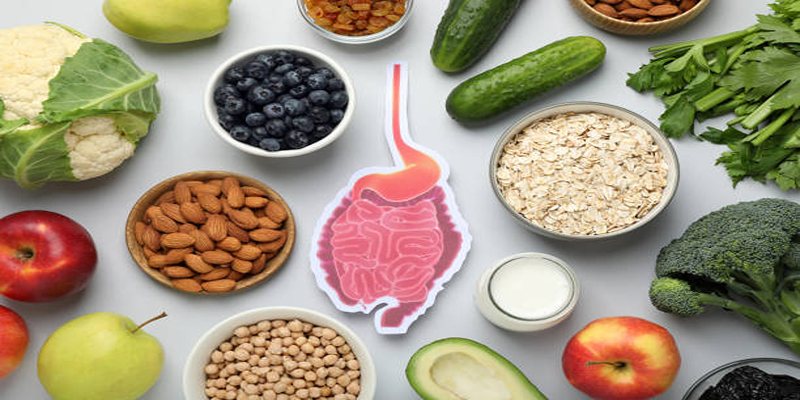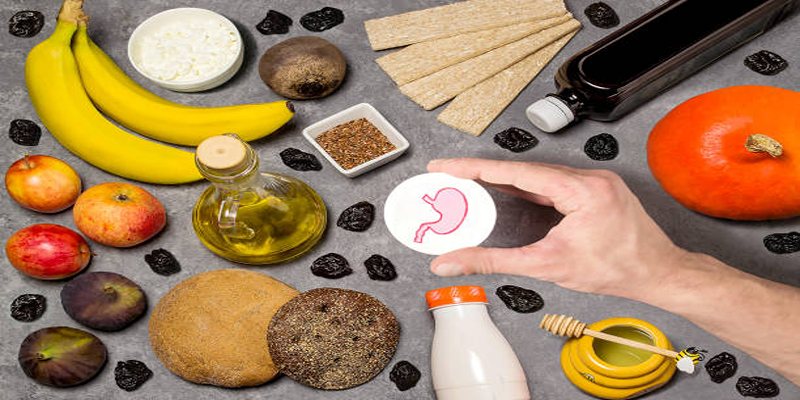Advertisement
Healthy Eating with Ulcerative Colitis: Best and Worst Foods
Nov 01, 2024 By Martina Wlison
Ulcerative colitis is a chronic inflammatory condition that impacts the lining of the colon and rectum, leading to symptoms like abdominal pain, diarrhea, and fatigue. Effectively managing this condition involves a multifaceted approach that includes medication, lifestyle changes, and careful dietary choices. While medications are essential for controlling inflammation and alleviating symptoms, the foods you eat significantly influence gut health and can either trigger flare-ups or promote healing.
Certain foods may worsen symptoms, while others can aid in reducing inflammation and fostering recovery. Understanding which foods to incorporate into your diet and which to avoid is crucial for enhancing the quality of life for individuals living with ulcerative colitis. This article delves into the five best and worst foods for managing this condition, providing valuable insights into dietary choices that can support remission and enhance overall digestive health.
Best Foods for Managing Ulcerative Colitis

Cooked Vegetables
Cooked vegetables are gentle on the digestive system and provide essential nutrients without causing irritation. Unlike raw vegetables, which can be difficult for people with ulcerative colitis to digest, cooking vegetables breaks down their fibers, making them easier to process. Vegetables such as carrots, spinach, squash, and zucchini can be lightly steamed, boiled, or roasted to retain their beneficial nutrients while softening their texture. Incorporating a variety of cooked vegetables into your diet ensures a diverse intake of vitamins and minerals, supporting overall health and contributing to a balanced, anti-inflammatory diet.
Lean Proteins
Lean proteins like chicken, turkey, and fish are beneficial for those managing ulcerative colitis because they supply the body with essential amino acids without causing excess stress on the digestive system. These proteins are easier to digest compared to fattier or processed meats, which can aggravate symptoms. Consuming lean proteins helps with maintaining muscle mass and providing energy, which is crucial for individuals experiencing fatigue due to the condition. Preparing these proteins through methods such as baking, grilling, or steaming can create tasty and nutritious meals that support gut health.
Probiotic-Rich Foods
Incorporating probiotic-rich foods into the diet can be beneficial for managing ulcerative colitis by introducing helpful bacteria to the gut. Fermented foods such as yogurt, kefir, and miso are packed with live cultures that help restore the balance of good bacteria in the digestive tract. This balance not only supports the immune system but also reduces inflammation and may alleviate some symptoms associated with this condition. For optimal benefits, its crucial to choose probiotic foods containing live and active cultures. Additionally, consulting with a healthcare professional can help determine the best way to incorporate these foods into your diet.
Low-Fiber Fruits
Low-fiber fruits, such as bananas, melons, and peeled apples, are gentle on the digestive system and can be a soothing option for those living with ulcerative colitis. These fruits provide essential vitamins and minerals while minimizing the risk of irritation associated with high-fiber options that are more difficult to digest. Bananas, for example, are an excellent source of potassium, which helps in maintaining proper fluid balance and muscle function. Including low-fiber fruits in your diet can offer a sweet and nutritious way to obtain necessary nutrients without aggravating your condition.
Refined Grains
Refined grains such as white rice, white bread, and pasta can be easier for individuals with ulcerative colitis to digest compared to their whole-grain counterparts. While whole grains are typically recommended for their fiber content, this fiber can exacerbate symptoms like bloating and diarrhea during a flare-up. Instead, refined grains provide a source of energy that is less irritating to the gut. It's important to note that balance is key, and these should be consumed alongside a variety of other nutrient-dense foods to ensure a well-rounded and nourishing diet.
Worst Foods for Managing Ulcerative Colitis

High-Fiber Foods
High-fiber foods, including certain raw vegetables, whole grains, and legumes, can be problematic for those with ulcerative colitis, particularly during flare-ups. The dense fiber content can exacerbate symptoms like bloating, gas, and abdominal pain by adding bulk to the stool and irritating the intestinal lining. Foods like broccoli, beans, and whole wheat bread are best minimized or avoided if they trigger symptoms. Instead, individuals can focus on low-fiber alternatives to manage their condition more effectively.
Dairy Products
While some people with ulcerative colitis can tolerate dairy, others find that lactose-containing foods like milk, cheese, and ice cream worsen their symptoms. Lactose, the sugar in dairy, can be difficult to digest for many, leading to discomfort, bloating, and diarrhea. For those who are lactose intolerant or sensitive, it's advisable to explore lactose-free options or alternative milk products, such as almond or oat milk. Keeping a food diary can help identify which specific dairy products, if any, are tolerable.
Spicy Foods
Spicy foods, such as dishes made with hot peppers or chili spices, can irritate the lining of the digestive tract and worsen symptoms for individuals with ulcerative colitis. The capsicum in spicy foods acts as an irritant, potentially exacerbating inflammation and causing discomfort like stomach cramps and diarrhea. It's advisable for those managing ulcerative colitis to avoid spicy meals, sauces, and seasonings, opting instead for milder flavors that reduce the risk of flare-ups. By limiting spicy foods, individuals can help maintain a more comfortable and balanced digestive process.
Caffeinated Beverages
Caffeinated beverages, such as coffee, tea, and energy drinks, can be problematic for individuals managing ulcerative colitis. Caffeine is a known gastrointestinal stimulant that can increase bowel activity, leading to symptoms such as diarrhea and abdominal discomfort. Moreover, caffeinated drinks can contribute to dehydration, which is particularly concerning during flare-ups.
Its beneficial for those with ulcerative colitis to monitor their caffeine intake and consider switching to non-caffeinated alternatives like herbal teas or decaffeinated coffee. Staying hydrated with adequate fluids is crucial for maintaining digestive health and overall well-being.
Processed Foods
Processed foods, such as packaged snacks, ready-to-eat meals, and fast food, often contain additives, preservatives, and artificial sweeteners that can negatively affect individuals managing ulcerative colitis. These ingredients may irritate the gut and potentially trigger or worsen symptoms like bloating, diarrhea, and abdominal pain. Additionally, processed foods generally lack nutritional value and are high in unhealthy fats and sugars, which can compromise overall health and hinder the body's ability to manage inflammation effectively.
To better manage ulcerative colitis symptoms, it's advisable to limit processed foods in favor of fresh, whole-food alternatives that provide essential nutrients without irritating additives. Cooking meals at home using natural ingredients allows for greater control over one's diet and can lead to improved digestive health and well-being.
Conclusion
Managing ulcerative colitis effectively requires understanding how different foods and beverages can impact your digestive health. By focusing on incorporating probiotic foods, low-fiber fruits, and refined grains, individuals can ensure they receive necessary nutrients while minimizing digestive discomfort. Meanwhile, avoiding high-fiber foods, dairy products, spicy foods, caffeinated beverages, and heavily processed snacks can further help in reducing the occurrence and severity of symptoms. Tailoring one's diet in conjunction with medical advice and monitoring individual responses to various foods can make a significant difference in enhancing quality of life for those living with this chronic condition.







